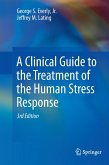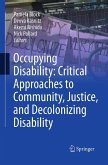Disability evaluations are the most common clinical mental health evaluations conducted for nontreatment purposes. They place mental health professionals in the role of communicating information that is typically confidential to administrative and legal systems. Unfortunately, mental health professionals receive little to no training in conducting assessments that focus on disability and disability management, and often do not understand the implications and risks of providing this information, especially without conducting what are often specialized evaluations. Clinical Guide to Mental Health Disability Evaluations is geared for general mental health practitioners, providing them with the basic information needed to competently provide the various types of disability evaluations. It also provides enough information to inform forensic mental health providers in conducting more specialized evaluations.
From the reviews:
"The book begins by addressing some of the most basic questions about how to handle requests for disability evaluations and general assessment of the issues, and flows methodically through evaluative issues ... . Chapters end with a concise, but relevant, reference section, as well as sections of key points and conclusions. ... can offer clinicians the opportunity to serve their patients and everyone else involved in these procedures more productively and comprehensively." (Steven T. Herron, Doody's Book Reviews, June, 2013)
"The book begins by addressing some of the most basic questions about how to handle requests for disability evaluations and general assessment of the issues, and flows methodically through evaluative issues ... . Chapters end with a concise, but relevant, reference section, as well as sections of key points and conclusions. ... can offer clinicians the opportunity to serve their patients and everyone else involved in these procedures more productively and comprehensively." (Steven T. Herron, Doody's Book Reviews, June, 2013)








